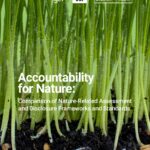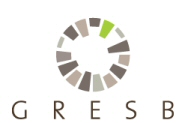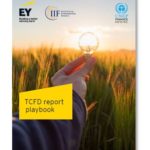Launched today in São Paulo, Brazil, The Road to Credibility assesses approaches to sustainability reporting in Brazil and highlights best practice in transparency and disclosure. Published by SustainAbility, Fundação Brasileira para o Desenvolvimento Sustentável (FBDS) and the United Nations Environment Programme (UNEP), the report is the eighth global, and first national, survey of corporate sustainability reporting completed for Global Reporters, now in its 12th year.
Natura, a major Brazilian cosmetics company, tops the ranking, followed closely by Suzano Petroquimica, based on its 2006 report, from the chemicals sector, and Ampla and Coelce, providers of electric utilities. With an average score of 47%, the Brazilian Top Ten are hot on the heels of international leaders, who averaged 57% in the 2006 SustainAbility/UNEP ranking of 50 Global leaders.
Brazil is also ahead of many emerging economies in corporate disclosure of sustainability performance. Some 76 Brazilian companies issued sustainability reports in 2006-07, compared to only 8 equivalents in mainland China and 12 in India. While the Brazilian Top 5 are closely scored, the spread widens lower in the ranking, and there is significant difference in quality between the Top Ten and the rest of the Brazilian field. All of the Top Ten use the Global Reporting Initiative (GRI) third generation guidelines (G3).
BRAZILIAN TOP TEN:
Company Industry Report year GRI Score
1 Natura Cosméticos Personal care products 2007 A+ 54%
2 Suzano Petroquimica Chemicals 2006 C+ 53%
3 Ampla Electric utilities 2007 A 52%
3 Coelce Electric utilities 2007 A 52%
5 Banco Real Financial services 2007 A+ 51%
6 Energias do Brasil Electric utilities 2007 B+ 47%
7 Sabesp Water utilities 2007 C 46%
8 Bunge Food processing 2007 A+ 41%
8 Celulose Irani Forestry and paper 2007 B+ 41%
10 Banco Itau Financial services 2007 A+ 35%
Full analysis is available in the report, downloadable from www.sustainability.com and www.fbds.org.br. The methodology is available from www.sustainability.com. The report highlights leading best practice in sustainability reporting and articulates key areas of improvement.
Some of the highlights include:
Financial markets can drive disclosure
– The uptake of sustainability reporting in Brazil has been motivated by various factors,including: the countrys increased exposure to international capital markets; the São Paulo Stock Exchanges (BOVESPA) introduction of the Novo Mercado listing for companies that voluntarily undertake to deliver corporate governance and transparency practices beyond compliance; and the 2005 launch of the socially responsible investment index, Indice de Sustentabilidade Empresarial (ISE).
Sustainability needs to be integrated into core business strategy
– While many Brazilian businesses clearly articulate their values, principles and policies on sustainable development, much still needs to be done to demonstrate how sustainability is intrinsically embedded into core business strategies, and how governance structures work to enable the implementation and delivery of visions and aspirations that are otherwise intangible.
Materiality and stakeholder engagement are essential for credibility
– The Brazilian Top 10 were partly differentiated from others in the field by their focus on key material issues, although (with an average page count of 161) there remains scope for far greater clarity, better prioritisation and more succinct analysis. In general, Brazilian reports lack strong stakeholder views on material issues and sustainability performance. Without external perspectives, many reports undermine their integrity and credibility by overemphasizing good news, falling short on disclosure of hard indictors and targets, and also failing to communicate leadership vision and commitment.
QUOTES:
Mark Lee, CEO, SustainAbility, said: As a country, Brazil sits at the crux of so many of the worlds sustainability challenges and opportunities. It is inspiring to see Brazilian businesses rising to the challenges of disclosure and transparency and helping to raise the bar for other emerging economies. Looking to the future, businesses in Brazil and around the world must work harder to integrate sustainability into their core business strategies and to engage key stakeholders more effectively. This is essential if future sustainability reports are to be robust and credible tools for improvement and change, worthy of reading and genuinely more than reputation management exercises.
Israel Klabin, Chairman, Fundação Brasileira para o Desenvolvimento Sustentável, said: The success of the Brazilian Top Ten helps show the way for businesses across the country. The leaders not only demonstrate how the strategic integration of sustainability is essential to corporate success, they also show how Brazil is on track to compete with the worlds global business leaders on this defining and urgent agenda.
Sylvie Lemmet, Director, United Nations Environment Programme Division of Technology, Industry and Economics, said: UNEP is delighted to continue support of the Global Reporters Program, seeking to promote and recognize best practice in transparency and disclosure of sustainability performance. We are delighted to see companies from Brazil and other emerging economies innovate and improve their ability to measure, track progress and report on key sustainable consumption and production issues our planet faces today. Greater take-up of the Global Reporting Initiative (GRI) Guidelines is also very timely as the world pays renewed interest in corporate governance and financial reform.



